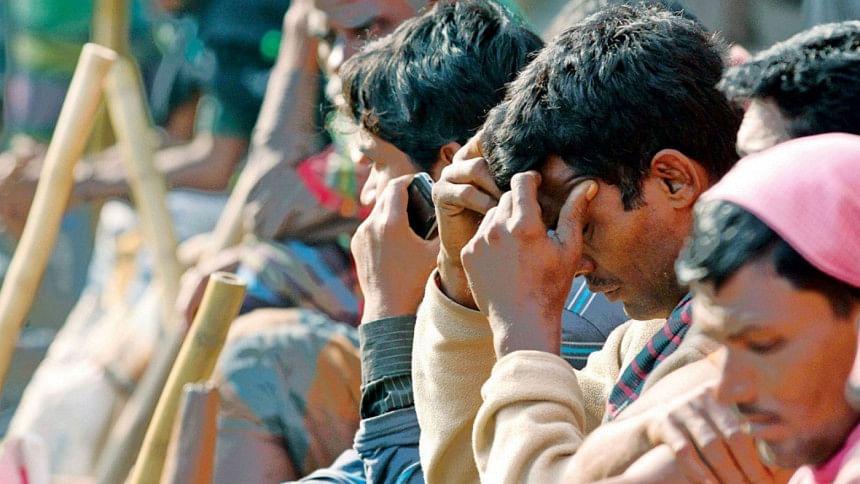Support for the poor crucial to economic recovery

To protect the consumption of low-income groups and boost overall domestic demand, which has been hit hard by Covid-19, the Citizen's Platform for SDGs has called on the government to provide cash support to the poor and low-income groups. According to numerous studies that have come out over the past year, the number of people who have been pushed into poverty since the pandemic began is massive. Many of them have had to cut back on their daily consumption (of even the basic necessities) in order to make ends meet. This will have severe adverse long-term effects on the wellbeing of people as well as the economy, if not addressed quickly.
On the flip-side, one of the most important factors in relation to a quick economic recovery is to boost domestic demand—through increased consumption on the one hand and increased investment on the other. Since most people, particularly those belonging to low-income groups, have seen their incomes drop due to the pandemic, while others have lost their jobs, domestic demand has taken a big hit over the last year. This means businesses have no reason to invest more, even if they have the means to, which most small businesses don't even have right now. Therefore, the government has to ensure that low-income groups receive adequate support and that small businesses—which make up the majority of businesses—have access to enough liquidity so that unemployment does not increase further.
When it comes to providing support to the poor, the government has had many struggles. Experts have been calling on the government to prepare a database of potential recipients so that government aid reaches those who truly need it—instead of others who are simply taking advantage of it. This is the most basic step before disbursing any cash assistance.
With new budgetary preparations right around the corner, the government should keep in mind the alarming rise in economic inequality and expand social safety nets significantly. However, one of the biggest challenges ahead, according to experts, is improving the effectiveness of public expenditure—which has mostly remained poor. Given the existing fiscal constraints on the government, how the economy recovers depends a great deal on how much the government can increase the quality of its upcoming expenditures. This includes how quickly and efficiently funds reach the most vulnerable groups.
The pandemic has adversely affected every citizen of Bangladesh. However, it is obvious that the impact on the marginalised and disadvantaged has been devastating. Providing immediate support to them is not only a moral imperative for the government, but it also makes the most sense if we want our economy to recover as quickly as possible.

 For all latest news, follow The Daily Star's Google News channel.
For all latest news, follow The Daily Star's Google News channel. 




Comments